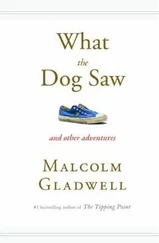The world — much as we want it to — does not accord with our intuition. This is the second lesson of the Tipping Point. Those who are successful at creating social epidemics do not just do what they think is right, they deliberately test their intuitions. Without the evidence of the Distracter, which told them that their intuition about fantasy and reality was wrong, Sesame Street would today be a forgotten footnote in television history. Lester Wundermans gold box sounded like a silly idea until he proved how much more effective it was than conventional advertising. That no one responded to Kitty Genovese's screams sounded like an open-and-shut case of human indifference, until careful psychological testing demonstrated the powerful influence of context. To make sense of social epidemics, we must first understand that human communication has its own set of very unusual and counterintuitive rules.
What must underlie successful epidemics, in the end, is a bedrock belief that change is possible, that people can radically transform their behavior or beliefs in the face of the right kind of impetus. This, too, contradicts some of the most ingrained assumptions we hold about ourselves and each other. We like to think of ourselves as autonomous and inner-directed, that who we are and how we act is something permanently set by our genes and our temperament. But if you add up the examples of Salesmen and Connectors, of Paul Revere's ride and Blue's Clues , and the Rule of 150 and the New York subway cleanup and the Fundamental Attribution Error, they amount to a very different conclusion about what it means to be human. We are actually powerfully influenced by our surroundings, our immediate context, and the personalities of those around us. Taking the graffiti off the walls of New York's subways turned New Yorkers into better citizens. Telling seminarians to hurry turned them into bad citizens. The suicide of a charismatic young Micronesian set off an epidemic of suicides that lasted for a decade. Putting a little gold box in the corner of a Columbia Record Club advertisement suddenly made record buying by mail seem irresistible. To look closely at complex behaviors like smoking or suicide or crime is to appreciate how suggestible we are in the face of what we see and hear, and how acutely sensitive we are to even the smallest details of everyday life. That's why social change is so volatile and so often inexplicable, because it is the nature of all of us to be volatile and inexplicable.
But if there is difficulty and volatility in the world of the Tipping Point, there is a large measure of hopefulness as well. Merely by manipulating the size of a group, we can dramatically improve its receptivity to new ideas. By tinkering with the presentation of information, we can significantly improve its stickiness. Simply by finding and reaching those few special people who hold so much social power, we can shape the course of social epidemics. In the end, Tipping Points are a reaffirmation of the potential for change and the power of intelligent action. Look at the world around you. It may seem like an immovable, implacable place. It is not. With the slightest push — in just the right place — it can be tipped.
The Tipping Point grew out of an article I wrote as a freelancer for Tina Brown at the New Yorker , who ran the piece and then — to my surprise and delight — hired me. Thank you, Tina. She and her successor, David Remnick, graciously allowed me to spend many months away from the magazine to work on this book. The earliest draft of my manuscript was brilliantly critiqued by Terry Martin, now of Harvard University and formerly of our hometown of Klmira, who has been a source of intellectual inspiration to me since tenth-grade biology. I also owe special thanks to the extraordinary contributions of Judith Rich Harris, author of The Nurture Assumption , which changed the way I thought about the world, and my mother, Joyce Gladwell, who is and always will be my favorite writer. Judith Shulevit, Robert McCrum, Zoe Rosenfeld, Jacob Weisberg, and Deborah Needleman took the time to read my manuscript and share their thoughts. DeeDee Gordon (and Sage) and Sally Horchow graciously lent me their homes for the long weeks of writing. I hope someday to return the favor. At Little, Brown, I had the pleasure of working with a team of talented and dedicated and wonderful professionals: Katie Long, Betty Power, Ryan I Lirhage, Sarah Crichton, and, most of all, my editor, Bill Phillips. Bill read this book so many times he can probably recite it by memory, and every time he read it his insight and intelligence made it a better book. Thank you. Two people, finally have my deepest gratitude. First my agent and friend Tina Bennett, who conceived of this project and saw it through — protecting, guiding, helping, and inspiring me every step of the way. And second, my editor at the New Yorker , the incomparable Henry Finder, to whom I owe more than I can say. Thank you all.










